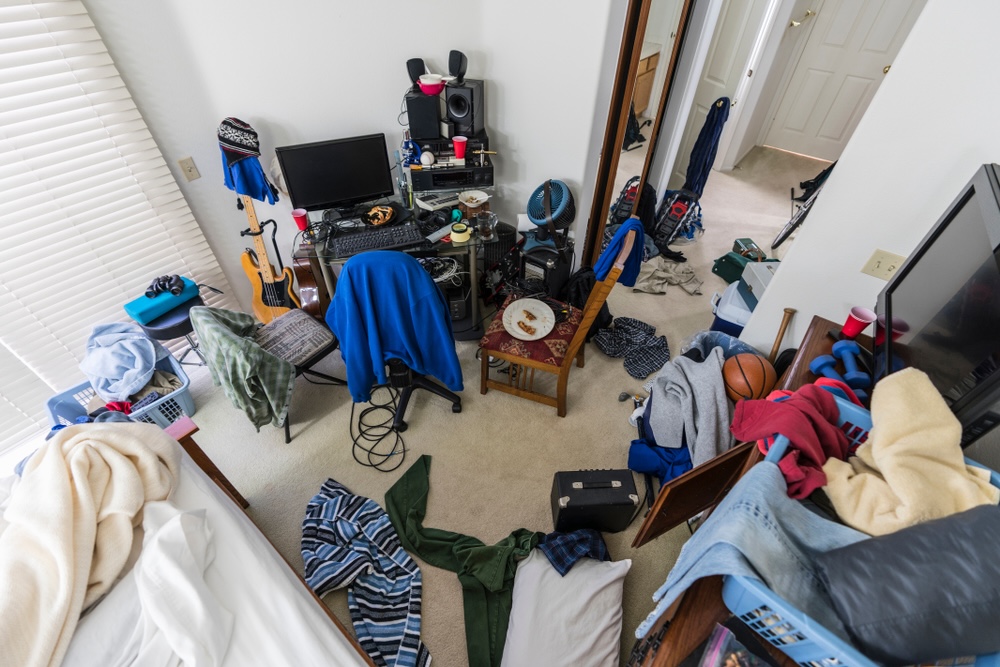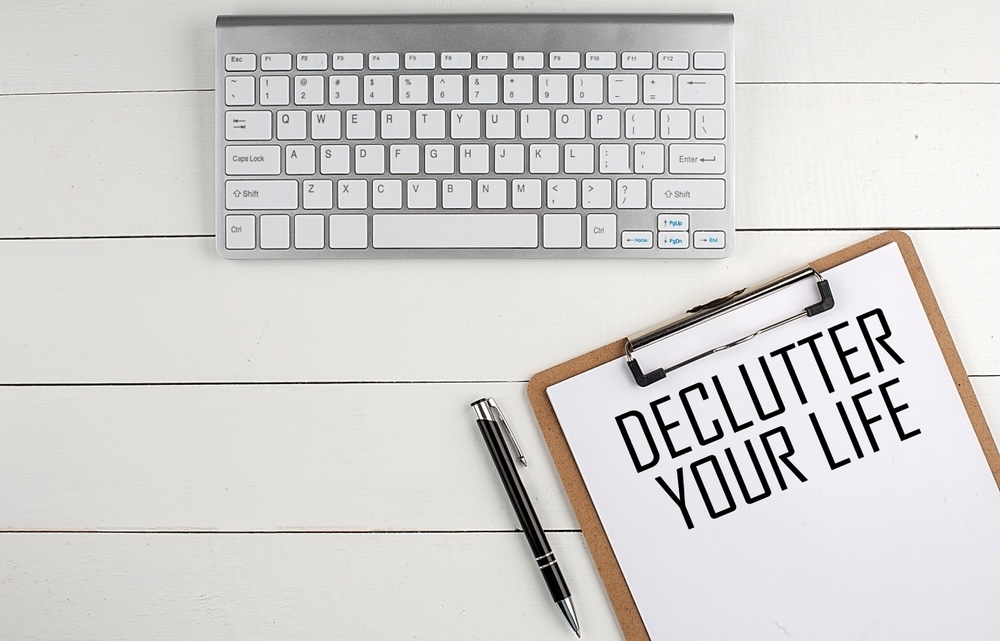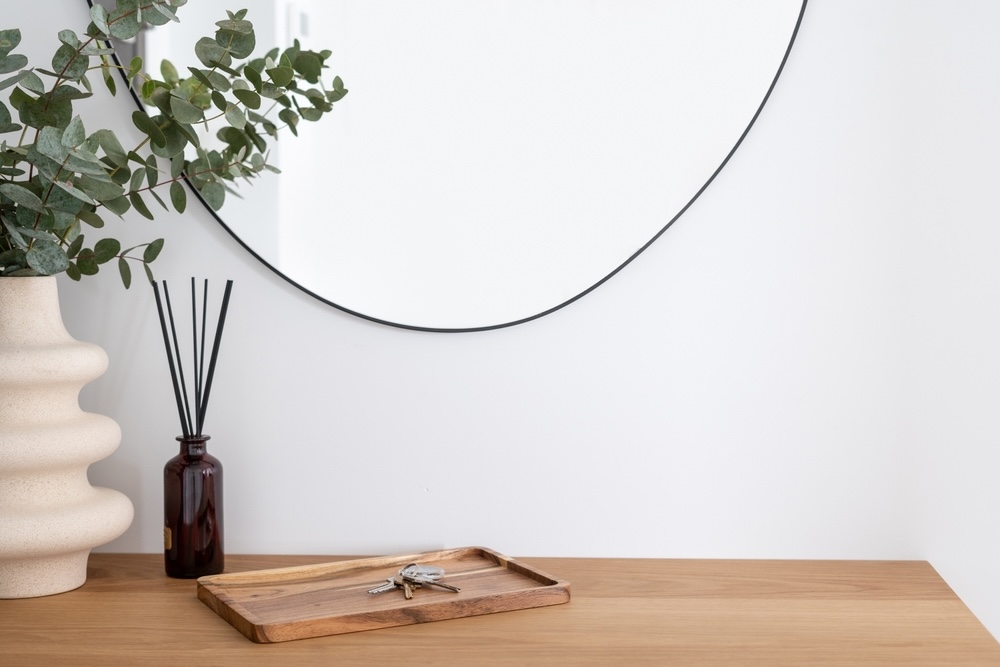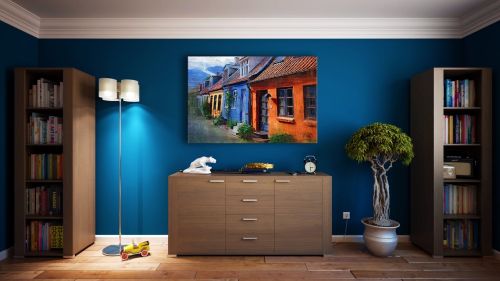Minimalist Home, Maximized Life

In today's fast-paced world, clutter and complexity often dominate our living spaces and mental landscapes, creating a pervasive sense of chaos and distraction. As a response to this overwhelming environment, the concept of minimalist living has emerged as a compelling solution for those seeking tranquility, order, and simplicity in their daily lives. By paring down to the essentials, minimalism allows individuals to strip away the non-essential, focusing on what truly enriches their lives.
Minimalism goes beyond mere aesthetics; it's an intentional way of life that advocates for a less is more approach, encouraging people to live with only what they need and find meaningful. This philosophy helps reduce the constant urge to consume and hoard possessions, leading to a more thoughtful and deliberate way of living. As we reduce the number of distractions around us, we can achieve a higher level of focus and clarity, enhancing our productivity and overall quality of life.
Adopting a minimalist lifestyle isn't just about decluttering your physical environment; it's also about simplifying your schedule, your commitments, and even your digital spaces. Each step towards minimalism helps to cultivate a more peaceful state of mind and a more sustainable lifestyle. With this comprehensive guide, backed by compelling facts and statistics, we'll explore how embracing minimalism can transform your home into a haven of peace and functionality, and how it can lead to profound changes in all aspects of your life.
Understanding Minimalism
Understanding minimalism involves comprehending its core principle: less is indeed more. This philosophy isn't just about owning fewer possessions—it’s about freeing up all aspects of one’s life for more meaningful engagements. Minimalism is a deliberate choice to live with less physical clutter, which in turn can lead to less mental clutter. By stripping down to the essentials, minimalists free up time, space, and energy—resources that can then be redirected toward nurturing relationships, engaging in fulfilling activities, and enhancing personal growth.
The benefits of minimalism are not just anecdotal; they are also supported by scientific research. A pivotal 2016 study by the Princeton University Neuroscience Institute highlights how physical clutter in your surroundings competes for your attention, much like multitasking drains your cognitive resources. The study found that clutter limits your brain’s ability to process information and focus, significantly affecting your cognitive function and increasing stress levels. Clutter can trigger cognitive overload, which is when your mind has more stimuli than it can manage effectively. This not only slows down your mental processing but can also make you feel anxious, tired, and overwhelmed.
Further emphasizing the impact of minimalism, this approach helps to clarify your priorities by reducing the number of decisions you have to make about what to keep, use, or store. This decluttering extends beyond physical spaces to include digital and emotional decluttering as well. By minimizing the number of digital notifications, emails, and online distractions, you can focus more on real-world interactions and tasks that matter. Similarly, by letting go of past grievances or unnecessary emotional baggage, you can cultivate healthier relationships and a more positive outlook on life.
Minimalism is not merely an aesthetic or a trend—it is a mindful strategy to enhance life’s quality by subtracting the non-essential. It fosters a space that supports concentration and peace, offering a sanctuary from the busy and often chaotic modern world. This intentional living setup allows minimalists to thrive in all areas of their lives by concentrating on what truly adds value, promoting a deeper sense of fulfillment and happiness.

The Benefits of Minimalist Living
Reduced Stress and Increased Productivity: The link between clutter and stress is well-documented. A study in the Personality and Social Psychology Bulletin highlighted that individuals with cluttered homes tend to have elevated cortisol levels, a clear indicator of stress. Clutter is not just physical—overloaded schedules and digital clutter also contribute to stress and anxiety. By adopting minimalist principles, you can create a calm, serene environment that promotes relaxation and mental clarity. This reduction in clutter naturally leads to better focus and higher productivity, as there are fewer distractions to divert attention from important tasks. Furthermore, a decluttered space can enhance creativity by providing a more orderly environment conducive to innovative thinking.
Financial Savings: Minimalism also promotes financial well-being. The National Association of Professional Organizers reports that excessive clutter leads not only to stress but also to financial losses, as many people purchase items they do not need or buy duplicates because they cannot find what they already own. By embracing minimalism, you reduce the impulse to buy non-essential items, which can significantly decrease your overall spending. This financial discipline extends to more thoughtful consumption patterns, where quality often trumps quantity, and long-term savings are prioritized over immediate gratification.
Environmental Impact: From an environmental standpoint, minimalism encourages a smaller carbon footprint. The average American generates about 4.9 pounds of solid waste daily, much of it comprising disposable items that could be avoided through minimalist practices, according to the Environmental Protection Agency. By purchasing fewer and choosing more durable goods, minimalists contribute less to landfill waste, resource depletion, and pollution. This conscientious approach to consumption means using resources more efficiently and promoting sustainability, which is crucial in the fight against environmental degradation.

How to Implement Minimalism in Your Home
Implementing minimalism in your home is a transformative process that not only declutters your physical space but also promotes a more intentional lifestyle. Here’s how you can effectively adopt and sustain a minimalist approach in your living environment:
Identify What Matters: The journey towards minimalism begins with introspection and identification of what truly matters to you. This involves a thoughtful assessment of your possessions and deciding which items are essential for your daily living and well-being. Essential items could range from functional furniture and necessary kitchenware to a select few personal items that bring joy and comfort. The goal is to distinguish between what is necessary and what is superfluous—keeping only those items that serve a purpose or enhance your quality of life without contributing to clutter.
Declutter Gradually: The process of decluttering should not be rushed. It is more sustainable and less overwhelming when done gradually. Start with one room or even one area within a room and methodically work through your possessions. Ask yourself if each item has been used recently, if it brings you joy, or if it is necessary for your daily activities. Items that do not meet these criteria should be donated, sold, or recycled. For instance, kitchen gadgets that are rarely used can be given away to someone who needs them, clothes not worn in over a year can be donated, and stacks of paperwork can be digitized to reduce physical clutter.
Quality Over Quantity: Embracing minimalism also means choosing quality over quantity. Investing in high-quality items that are durable and long-lasting not only ensures that you get better usage out of them but also prevents the cycle of constant buying and discarding. Additionally, consider the versatility of new purchases. Opt for items that can serve multiple purposes, which can significantly reduce the need for additional possessions and help maintain a clutter-free environment.
Maintain Your Space: Maintaining a minimalist home is an ongoing process that requires regular effort. Establish routines for cleaning and reassessing your space to ensure that clutter does not begin to accumulate again. This might include a weekly review of what items have been brought into the home and whether they adhere to your minimalist standards. Regular maintenance helps inculcate the principles of minimalism into everyday habits, making it a sustainable long-term practice.
Embrace Minimalist Habits: Beyond physical decluttering, adopting minimalist habits in daily life can reinforce your commitment to a minimalist lifestyle. This includes reducing waste, being mindful of new purchases, and continually questioning the necessity and function of items in your home.

Conclusion
Embracing minimalist living goes far beyond the simple act of owning fewer things. It is a profound shift towards creating more space in your life for what truly matters—happiness, fulfillment, and peace. This lifestyle choice is supported by compelling statistics and facts that illustrate the tangible benefits of minimalism, such as improved mental health and productivity, significant financial savings, and a positive impact on the environment.
Adopting minimalist principles allows you to transform your home into a more efficient and serene space, but the impact extends even further. It can lead to a clearer mindset and a more focused approach to life’s challenges and opportunities. By removing the unnecessary clutter that fills our physical and mental spaces, we grant ourselves the freedom to engage more deeply with our passions and the people we care about. This can lead to enhanced relationships and a greater sense of community, as we focus more on human connections and less on material possessions.
Moreover, the practice of minimalism supports sustainable living by promoting the reduction of waste and the thoughtful consumption of resources. This not only helps protect the environment but also instills a sense of responsibility and stewardship towards our planet. By choosing quality over quantity and reducing our overall consumption, we contribute to a more sustainable world, benefiting current and future generations.
In conclusion, the minimalist lifestyle offers a path to a richer, more purposeful existence. It challenges the modern narrative of equating possessions with success and happiness, and it provides a practical framework for those seeking to simplify their lives. Whether it's through decluttering our homes, refining our commitments, or reevaluating our consumption habits, minimalism can lead to a more deliberate and fulfilling life. By embracing these principles, you are choosing to live intentionally, making space not just in your home, but in your heart and mind for what truly enriches your life.
Check more articles on our blog

The Benefits Of Bamboo Cabinets In Kitchen, Bathroom, And Home Décor

Rediscovering Elegance: The Timeless Charm of Pottery Barn for Home Decor

The Science of Color Psychology in Home Decor: How to Choose the Right Colors for Your Space
